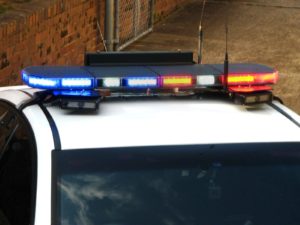Use of license plate scanning by police is a phenomenon across Massachusetts and continues expanding. Yet, restrictions on retention of data are still not required under state law.Boston police and many other towns across Massachusetts have deployed automatic license plate reading cameras that identify your car’s location and match your tag against local and federal databases. This data is stored by date, time, and location, and uploaded to federal databases.
What this means is that your local police department is participating in building a statewide and national tracking database for all citizens. If a plate scanning cruiser drove by you, your location is now logged. Many of these systems are being installed with federal grant money that requires that the data be shared with FBI databases.
And there are no explicit legal controls on who owns that data, who has access to it, or for what reason. The Massachusetts Executive Office of Public Safety and Security believes this is entirely uncontroversial.
The Massachusetts ACLU is on the case but has thus far not received any answers. Even the Fastlane automatic toll collecting system has restrictions on who and how that data can be accessed. And that system is much more limited, and you at least have to opt-in by signing up for a transponder. Not so with these police license plate scanners. If you have a license plate and drive on public roads, you are opting-in for government surveillance.
Yes, the purported, and perfectly reasonable purpose for these systems is for quickly finding vehicles in the databases that might be stolen cars, wanted for amber alerts, or other police investigations, or owned by people with outstanding warrants for failure to appear in court, or could be driving on suspended driver’s licenses.
The legitimacy of these systems stems from previous court rulings that it is proper and legal police procedure for officers to manually enter in plate numbers of any vehicle on the road. In the past officer’s have done this, so instead of manually entering a few or a few dozen selected license plates in the computer, the cameras and scanners can process literally thousands. So it is understandable that police love these systems. It is a force multiplier and does a lot of the manual work automatically.
 But these privacy concerns aren’t going to go away.
But these privacy concerns aren’t going to go away.
If you are parked outside your church or social club, and a police cruiser drives by, now the fact that you go belong to this particular organization is government information. Not only that, but they know who was there parked next to you.
So not only can they search these databases for where you have been, they can figure out who you may have been with. They will be able to detect all kinds of patterns and build a profile of information on you that the government absolutely has no right to track.
As these scanning systems expand to eventually be standard equipment on all police cruisers, the amount of data they will be able to collect will be astronomical.
If citizens really knew this was happening, they might be much more concerned than people realize. Voluntarily sharing your information online on sites like facebook is one thing, but the federal government passively monitoring and storing information on where you drive is a very different matter, and hopefully as more people find out about it, we can pass stricter laws on how this information is gathered, and who has access to it.